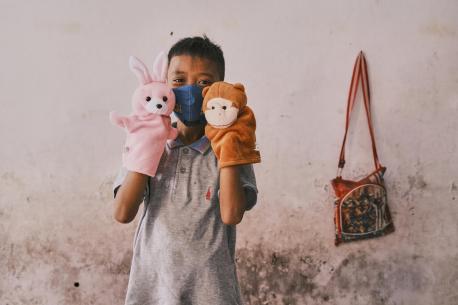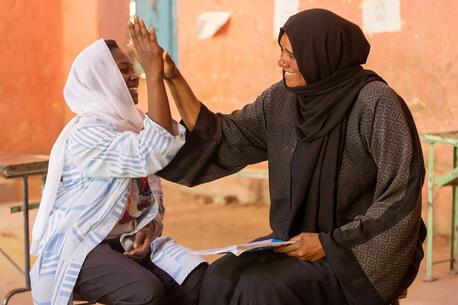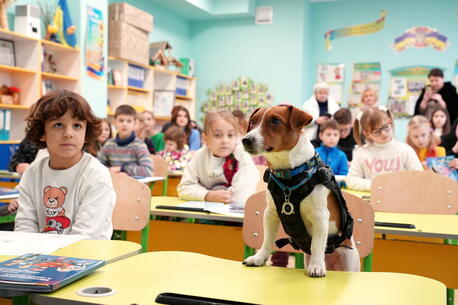
Prioritizing Children's Mental Health in U.S. Foreign Assistance
The U.S. Congress introduces first-ever bipartisan legislation recognizing global need for mental health coordination and investment.
Mental health and psychosocial support (MHPSS) is essential for the health and well-being of all children, caregivers and communities. Yet, millions of people around the globe struggle with mental health conditions. Prior to the pandemic, 14 percent of the world’s children and adolescents experienced some form of mental health condition. Mental health disorders are especially prevalent in children exposed to conflict, where severe emotional stress can have a lifelong impact.
The consequences of COVID-19 are challenging mental health like never before and Members of Congress are stepping up to recognize that MHPSS investment is needed in both the United States and around the globe. Throughout May, in recognition of Mental Health Awareness Month, lawmakers passed bipartisan bills such as the Mental Health Services for Students Act and helped to promote new legislation that would support the integration of MHPSS in U.S. foreign assistance programming.
On May 25, Sen. Bob Casey (D-PA) and Rep. Ted Deutch (D-FL) joined UNICEF and other international NGOs to bring attention to this pressing issue, particularly in the wake of COVID-19. In his remarks, Sen. Casey called for U.S. foreign assistance to reflect mental health as a priority and invest in mental health and psychosocial support services, particularly for young people and their caregivers.
As Chair of the House Foreign Affairs Middle East Subcommittee, Rep. Deutch spoke to the stories of children facing war, terror and upheaval from across the region, stressing that “the urgency with which we need to act is clear.”
Even prior to the pandemic, 14% of the world’s children and adolescents experienced some form of mental health condition. The needs have grown considerably since then. "The urgency with which we need to act is clear," says @RepTedDeutch: pic.twitter.com/uagPKNxWfK
— UNICEF USA (@UNICEFUSA) June 18, 2021
UNICEF USA recognizes that mental health is an issue in almost every country, rich and poor. Stigma and underfunding remain a barrier across the board in terms of accessing mental health services. Still, 75 percent of people with mental health conditions in low- and middle-income countries receive no treatment and a recent Lancet Commission reveals that child and adolescent mental health receives just 0.1 percent of health-related global development assistance.
Newly introduced, the bipartisan Mental Health in International Development and Humanitarian Settings (MINDS) Act is the first-ever U.S. legislation that addresses mental health and psychosocial support in foreign assistance. The bill supports best practices, lays the groundwork for a global mental health strategy and emphasizes the needs of vulnerable populations — including vulnerable children and caregivers, those living in poverty and conflict zones, and other marginalized communities.


